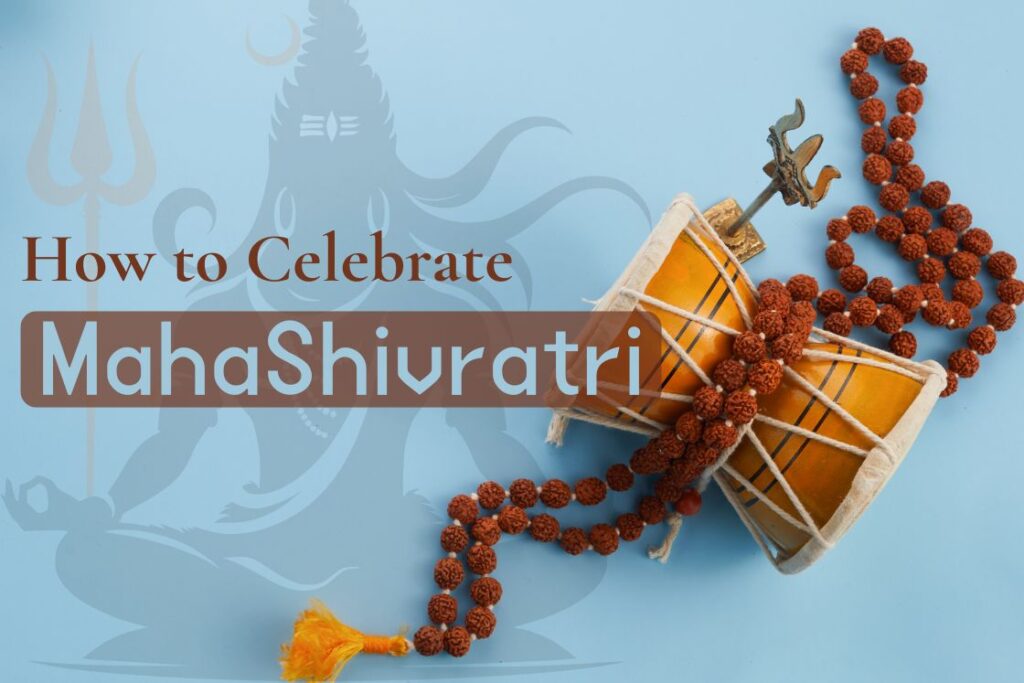
Welcome to the sacred celebration of Mahashivratri, a day pulsating with spiritual energy and profound significance. This celestial event, observed annually on the 14th day of the dark fortnight in the Hindu month of Phalguna (corresponds to February or March in the Gregorian calendar), holds a unique place in the hearts of millions.
In 2024, Mahashivratri will grace us on the 8th of March, aligning with the cosmic rhythms that make this day a powerful conduit for spiritual growth and divine connection. As we approach this auspicious occasion, let us delve into the timeless traditions and practices that can elevate your Mahashivratri experience.
The Significance of Mahashivratri
Mahashivratri, literally translating to the “Great Night of Shiva,” marks the convergence of devotion and cosmic energies. Celebrated in honor of Lord Shiva, the supreme deity in the Hindu pantheon, this day signifies the marriage of Shiva and Parvati, symbolizing the union of consciousness and energy (or Shiva and Shakti), the divine dance of creation and destruction.
Beyond the realms of mythology, science sheds light on the unique energy alignment during Mahashivratri. Traditionally, it is believed that the planetary positions on Mahashivratri night create a conducive atmosphere for heightened spiritual experiences. From a scientific standpoint, the natural upsurge of certain energies during this time can impact human consciousness positively.
What Makes Mahashivratri Special?
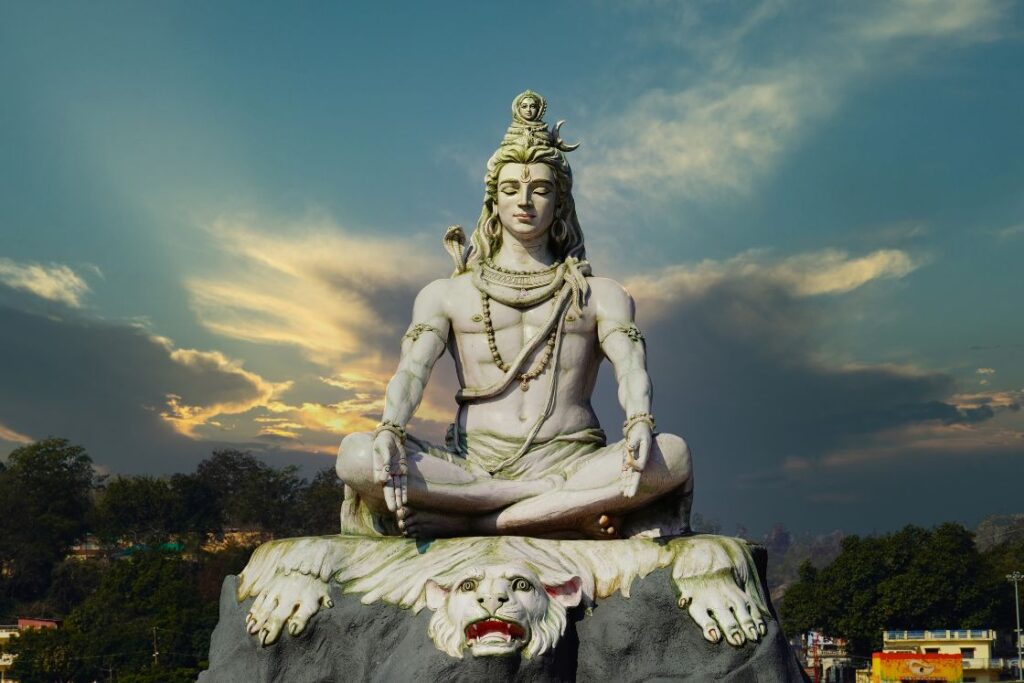
On this celestial night, the cosmic forces align, and the atmosphere becomes charged with spiritual vibrations. Devotees believe that engaging in sacred practices on Mahashivratri can open pathways to divine blessings, inner peace, and spiritual growth.
Astrologically, Mahashivratri aligns with the planetary positions that enhance spiritual receptivity. The prevalence of positive energy fields during this celestial event may contribute to an increased sense of tranquility, focus, and heightened awareness.
Scientific studies suggest that participating in spiritual activities and rituals on Mahashivratri, such as meditation and chanting, can lead to a decrease in cortisol levels—the hormone associated with stress. By actively participating in Mahashivratri observances, individuals may experience a tangible reduction in stress and an overall sense of well-being.
What to Do on Mahashivratri?
On Mahashivratri, immerse yourself in spiritual practices that resonate with the divine vibrations of Lord Shiva. You can begin the day with a reverent fast, focusing on purity of body and mind. Engage in night-long prayers, known as Jagran, to awaken your spiritual consciousness during the sacred hours. A pilgrimage to Shiva temples enhances the celestial connection, absorbing the potent energies of the auspicious day.
Below we have discussed some common practices that one should do on Mahashivratri to get maximum benefits of that day/night;
1. Fasting and Abstinence: Nourishing the Spirit
On Mahashivratri, fasting is a sacred rite to nourish the spirit. The tradition of abstaining from food during this time holds profound significance, symbolizing a detoxification of both the body and the mind. Devotees undertake Mahashivratri fast not as a mere ritual but as a conscious choice to purify themselves and attain a heightened state of spiritual awareness.
The fast typically commences at sunrise and concludes on the following day after the night-long celebrations. During this period, individuals abstain from certain foods, including grains, and instead opt for fruits, milk, and specific items considered favorable to Lord Shiva.
Beyond the physical act of abstaining from food, Mahashivratri fasting encourages a mental and emotional detox. It prompts introspection, allowing individuals to detach from worldly concerns and focus on spiritual pursuits.
As you partake in this fast, let it be a mindful journey, a deliberate step towards cleansing and preparing the vessel for the influx of divine energies that Mahashivratri promises.
2. Night Vigil (Jagran): Staying Awake for Spiritual Awakening
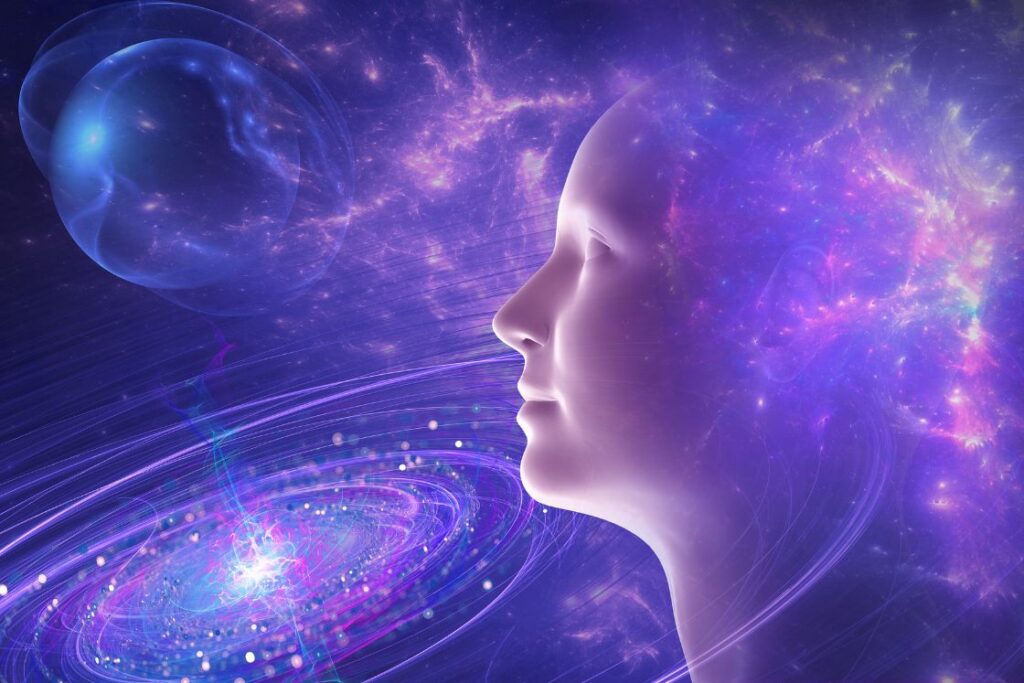
As the cosmic energies converge on Mahashivratri, the tradition of Jagran takes center stage. The night vigil, also known as Jagran, is a powerful practice that aligns with the belief that the divine is most accessible during the nocturnal hours of this auspicious day.
On Mahashivratri, devotees gather in temples or homes, creating an atmosphere charged with devotion. The night unfolds with continuous prayers, hymns, and rituals dedicated to Lord Shiva. The act of staying awake symbolizes a conscious effort to break free from the mundane and connect with the ethereal realms.
Engaging in Jagran serves as a potent catalyst for spiritual growth. It allows individuals to transcend the limitations of the physical world, entering a realm where the soul can communicate with the divine effortlessly. The sacred vibrations created during Jagran infuse the surroundings with an energy that elevates the spiritual experience.
3. Visit to Shiva Temples: Absorbing Sacred Energies
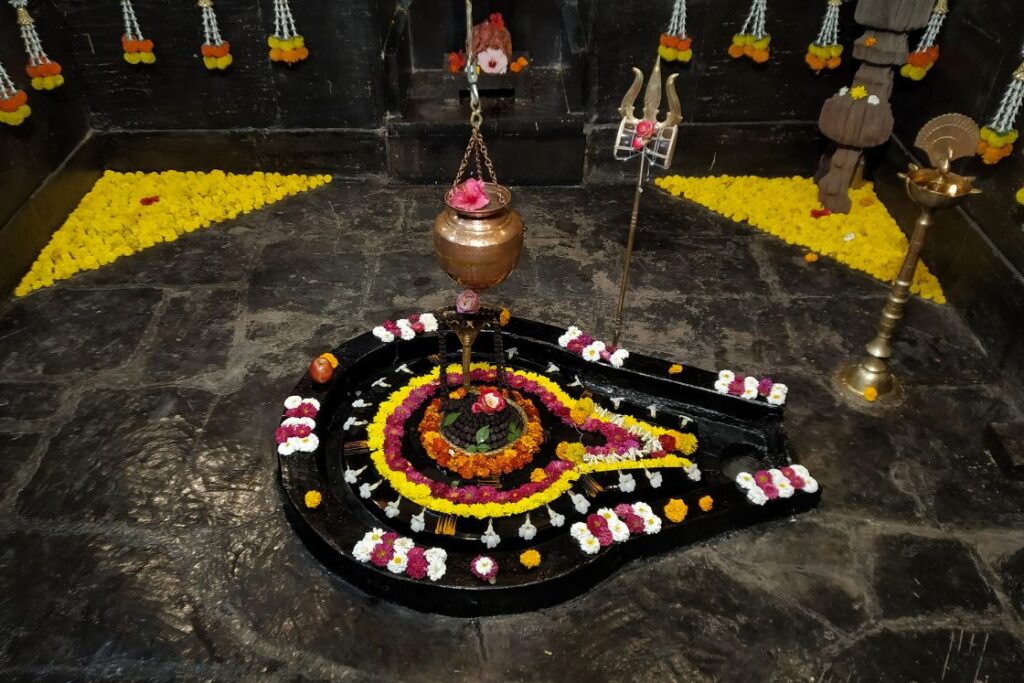
A pilgrimage to Shiva temples on Mahashivratri is a sacred odyssey you can consider taking. The act of visiting Shiva temples on Mahashivratri is more than a physical journey; it’s a soulful communion with the divine. Devotees offer prayers, perform rituals, and witness the grandeur of deity processions that captivate the senses.
The centerpiece of Shiva temples, the Shivalingam, becomes the focal point of worship. The Shivalingam, a symbolic representation of Lord Shiva’s cosmic energy, embodies the formless and eternal nature of the divine. Devotees engage in profound prayers and rituals, offering flowers, Bilva leaves, milk, and sacred waters to the Shivalingam, symbolizing both the nurturing and destructive aspects of Lord Shiva.
The act of praying with the Shivalingam holds deep spiritual significance. It is a gesture of recognizing the formless divine, transcending the limitations of physical representation. The circular base of the Shivalingam symbolizes the infinite cosmic energy, and the upward-pointing linga represents the manifestation of this energy into the material world.
4. Meditation and Yoga: Connecting with the Divine Within

As the world slows down in the stillness of the night, Mahashivratri becomes an opportune time for yoga and meditation. Seek a quiet space, free from distractions, and let the rhythmic breath and gentle yoga guide you into a state of deep contemplation. Visualize the formless presence of Lord Shiva within, transcending the boundaries of the physical body. The meditative journey on Mahashivratri opens a portal to the realms beyond, allowing for communion with the divine essence that resides within the core of every being.
Beyond its spiritual significance, both meditation and yoga have garnered recognition in the scientific realm for their positive impact on mental and physical well-being. Studies indicate that these practices contribute to stress reduction, improved focus, and a heightened sense of overall tranquility.
By engaging in meditation and yoga on Mahashivratri, individuals not only connect with the divine but also harness the scientifically validated benefits of these ancient disciplines.
5. Chanting Shiva Mantras: Harmonizing the Soul

Chanting Shiva mantras on Mahashivratri harmonizes the soul with the cosmic vibrations of Lord Shiva. Mantras have the power to transcend the material realm and connect the seeker with the divine energies that abound on this auspicious night.
Selecting the appropriate mantras holds the key to unlocking the transformative potential of chanting. The revered “Om Namah Shivaya” mantra is a timeless invocation that encapsulates the essence of devotion to Lord Shiva. Chanting this mantra, or others dedicated to Shiva allow the vibrations to permeate every fiber of one’s being.
6. Charity and Acts of Kindness: Spreading Love and Light
Mahashivratri extends beyond personal rituals into the realm of selfless service, charity, and acts of kindness—an opportunity to illuminate the world with love and light. Engaging in charitable endeavors on this auspicious day align you with the compassionate spirit of Lord Shiva.
Embrace Mahashivratri as an occasion to extend a helping hand to those in need. Whether through monetary contributions, donations, or volunteer work, philanthropy becomes a form of worship, a tangible expression of compassion that resonates with the divine principle of selfless giving.
A time-honored tradition on Mahashivratri involves providing food to the hungry. Devotees organize community kitchens, distribute meals, or contribute to food drives. The act of nourishing others mirrors the nurturing aspect of Lord Shiva and serves as a powerful means to spread positivity and well-being.
7. Cultural Celebrations: Joining the Festive Spirit
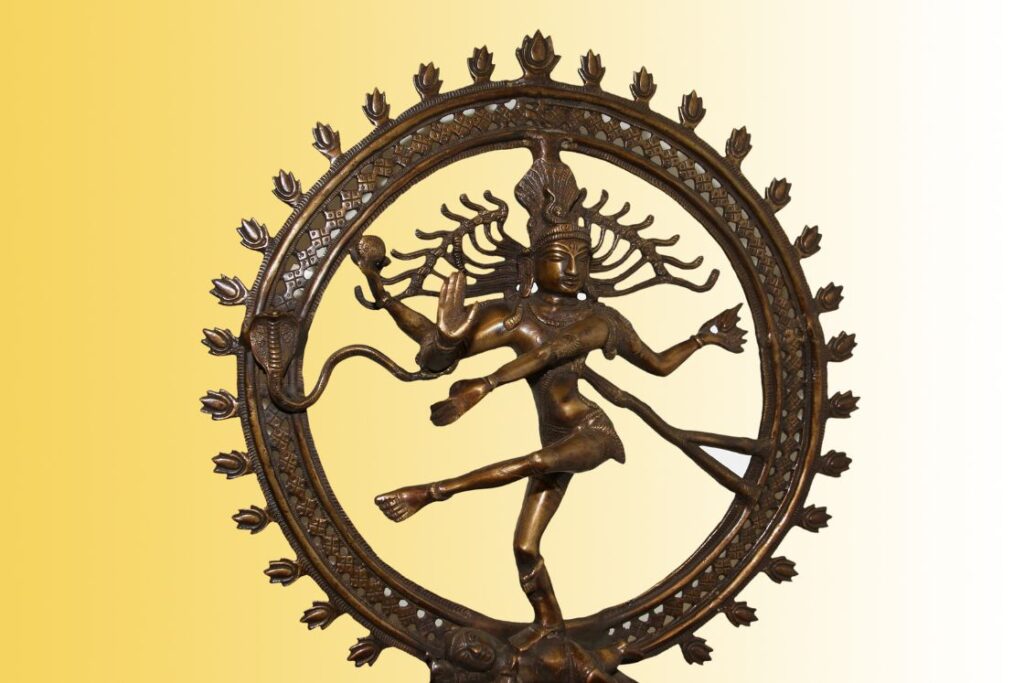
Mahashivratri is not just a solemn occasion; it’s a vibrant celebration that invites devotees to revel in the festive spirit, honoring Lord Shiva through cultural expressions of joy, music, dance, and community gatherings.
Immerse yourself in the rhythmic beats of traditional instruments and the lively cadence of devotional songs. Cultural celebrations often feature classical and folk performances, including the vibrant Tandava dance—a divine dance form attributed to Lord Shiva. Participate in or enjoy these cultural expressions that pay homage to the cosmic dancer.
Conclusion
As Mahashivratri’s celestial echoes recede with the dawn, we find ourselves adorned with the sacred gifts of devotion and spiritual enlightenment. This journey through fasting, night vigils, temple visits, meditation, mantra chanting, pujas, acts of kindness, and cultural celebrations has been transformative.
Mahashivratri is a beacon, illuminating the path to divine blessings and self-discovery. The fasting and abstinence purify, night vigils elevate spiritual consciousness, and temple visits connect us with sacred energies, especially through prayer with the Shivalingam.
Join our Mahashivratri meditation and yoga class online! Elevate your energy, connect with divine forces, and experience spiritual rejuvenation. Secure your spot now: Registration Link.




